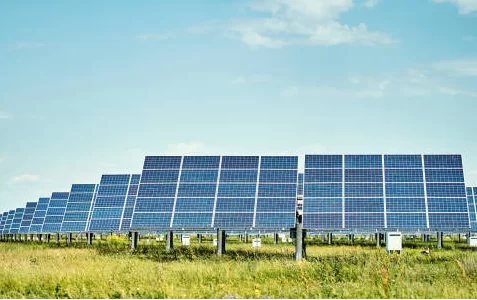Solar Management Units: The Key to Efficient Use of Renewable Energy
In today’s renewable energy era, solar energy is gaining more and more attention as a clean and renewable energy source. Within solar systems, the solar management unit plays a crucial role. This article will explore the functions, advantages, and applications of the solar management unit in renewable energy systems.

What is a Solar Management Unit?
A solar management unit is a device specifically designed to monitor, manage, and optimize the performance of solar power generation systems. It can track the output of solar panels, adjust power distribution, and ensure that the system operates at its best, thereby improving energy utilization efficiency.
Main Functions of the Solar Management Unit
- Real-Time Monitoring
The solar management unit can monitor various indicators of the solar power generation system in real time, including power generation, battery capacity, and load status. This real-time data helps users understand the system’s operational state promptly and make necessary adjustments.
- Fault Detection
With built-in fault detection mechanisms, the solar management unit can automatically identify issues within the system and issue timely alerts. This early warning function not only reduces downtime due to failures but also lowers maintenance costs.
- Energy Optimization
The solar management unit can dynamically adjust the system’s operation based on weather conditions and power demands, ensuring maximum utilization of solar energy. For example, on sunny days, the system can prioritize storing electricity, while on cloudy days or at night, it can draw power from the battery.
Advantages of the Solar Management Unit
- Increased Efficiency
By utilizing a solar management unit, users can maximize the power generation efficiency of their solar systems. Through real-time monitoring and energy optimization, users can ensure that solar energy is fully utilized and energy waste is minimized.
- Cost Reduction
Although the initial investment may be higher, in the long run, the solar management unit can effectively lower energy costs. By optimizing generation and storage, users can reduce reliance on traditional electricity, thereby cutting down on their electricity bills.
- Enhanced Sustainability
In a world advocating for sustainable development, the solar management unit helps users better utilize renewable energy. By optimizing the use of solar energy, users can not only reduce their carbon footprint but also contribute to environmental protection.
Applications of the Solar Management Unit
- Residential Solar Systems
Many households are installing solar power systems to reduce energy costs and increase energy independence. The solar management unit can help families effectively manage their systems, ensuring optimal performance during everyday use.
- Commercial Buildings
Commercial buildings typically have higher energy consumption, and using a solar management unit can significantly reduce operational costs. By optimizing energy use, commercial buildings can maximize their solar energy utilization while meeting their demands.
- Remote Areas
In remote areas, solar management units can provide reliable energy solutions for places lacking electricity infrastructure. Users in these areas can rely on solar management units to effectively manage and utilize solar resources.
Future Outlook
With advancements in technology, solar management units will continue to evolve, becoming smarter and more efficient. Future solar management units may integrate artificial intelligence and big data analysis to further optimize energy management. Additionally, as more people recognize the importance of renewable energy, the demand for solar management units will continue to grow.
Conclusion
The solar management unit plays a vital role in promoting the use of renewable energy. Through real-time monitoring, fault detection, and energy optimization, these devices not only enhance the efficiency of solar systems but also reduce costs for users. As technology advances, solar management units will play an even greater role in future energy management, helping us achieve a more sustainable way of living.
